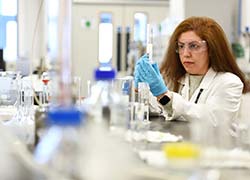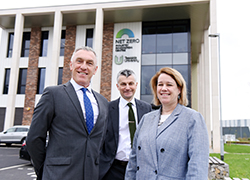Tenth Meteor strikes Teesside
Over 500 local primary children will converge on the University on July 7 for five days to complete a range of activities, including broadcast media, art and design, science and sport.
The Year Six (aged ten to eleven) pupils will be taking part in the tenth Meteor Summer School.
We first launched Meteor in 1999 as an initiative to inspire primary children from six Middlesbrough schools to think about the benefits of further and higher education. Summer schools were held on the campus, with ten pupils on the pilot year visiting Tony Blair and members of the Cabinet in 2000.
Since then, Meteor has expanded massively and now includes young people in secondary schools throughout Teesside – and each year the core of the Meteor programme is topped-up by 500 Year 6 from 14 primary schools from across the Tees Valley.
Before the Summer School the pupils work with some of our University students who mentor the children in their own schools. They also get an opportunity to take part in art and science tours as well.
Following the summer school, the pupils then process from the University down Albert Road to a ‘mini-graduation’ at Middlesbrough Town Hall to celebrate taking part in Meteor. This year’s Meteor graduation will take place on Tuesday 15 July, with the procession starting at 9.55am.
- The University’s Meteor team hosted their first conference in May. Funded by the Higher Education Funding Council for England (HEFCE), the event attracted representatives from 11 diverse higher education institutions (HEIs). These included the Universities of Aston, Birmingham, Bradford, Bolton, Canterbury Christ Church, Leeds, Liverpool, Middlesex, Wolverhampton and a representative of the Central School of Speech and Drama in London.
- The conference followed several HEFCE supported events, held nationwide in December 2007, to spread the word to other UK HEIs about Meteor. The conference gave those interested a chance to see the scheme in action.
- Our visitors took part in a variety of workshops and heard from the Meteor team how to adapt the Meteor model for their own institutions. They also had the opportunity to experience a visit to the University by local primary and secondary school pupils.
 Supporting Nigerian farmers by transforming food waste into
...
Supporting Nigerian farmers by transforming food waste into
... International partnership signed with prestigious American
...
International partnership signed with prestigious American
... Teesside University academics join prestigious network of
...
Teesside University academics join prestigious network of
...